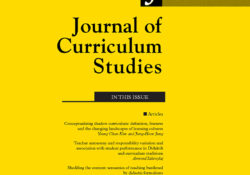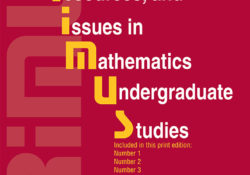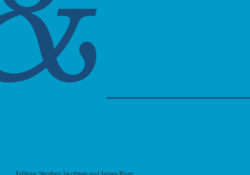tandfonline.com har udgivet en rapport under søgningen “Teacher Education Mathematics”: ABSTRACT Formulae display:?Mathematical formulae have been encoded as MathML and are displayed in this HTML version using MathJax in order to improve their display. Uncheck the box to turn MathJax off. This feature requires Javascript. Click on a formula to zoom. ABSTRACT The primary objective of the study was to empirically test theoretical claims made about differences between Didaktik and curriculum traditions concerning teacher autonomy (TA) and teacher responsibility (TR). It tests the hypothesis that TA and TR are higher among Didaktik than curriculum countries. The second objective was to explore associations of TA and responsibility measures with students’ science performance? Nationally representative data from 2009 Programme for International Student Assessment (PISA), collected through a two-step random selection process were… Continue Reading →
Like this:
Like Loading...
tandfonline.com har udgivet en rapport under søgningen “Teacher Education Mathematics”: ABSTRACT ABSTRACT This paper reports on a study of the recent curriculum reform of the Swedish upper-secondary school, Gy11. Although aesthetics were not made compulsory subjects by this reform, all students have a statutory entitlement to be offered a minimum of one course in an aesthetics subject. We wished to determine whether students are actually being given the opportunity of choosing such subjects. The study is a theory-based and content-oriented evaluation. Data are based on curriculum studies and a comprehensive survey of upper-secondary school principals. Our findings indicate that while principals have generally organized aesthetics courses, students seldom choose this kind of educational content. Instead, students’ selection is ruled by indirect methods of manipulation. Link til kilde
Like this:
Like Loading...
eric.ed.gov har udgivet: The purpose of this study was to empirically test the posit that students who participated in a contextualized, mathematics-enhanced high school agricultural power and technology (APT) curriculum and aligned instructional approach would not differ significantly (p less than 0.05) in their technical competence from students who participated in the traditional APT curriculum and instruction. This study included teachers and students from 32 high schools in Oklahoma (16 experimental classrooms; 16 control classrooms). Students were enrolled in an APT course during the 2004-2005 school year. The experimental design used was a posttest only control group; unit of analysis was the classroom. One-way analysis of variance (ANOVA) was used to test the study’s null hypothesis. The measure of students’ technical competence did not reveal results that held statistical significance… Continue Reading →
Like this:
Like Loading...
tandfonline.com har udgivet en rapport under søgningen “Teacher Education Mathematics”: ABSTRACT ABSTRACT The purpose of this article is to explore how education policy that is both enabled and constrained by transnational policy flows and national policy built up by social, cultural and historical traditions are enacted through curriculum at the classroom level. The focus is on how policy rationality embedded in the structure and content of curriculum is transformed into certain rationalities in classroom teaching. By understanding lessons as ‘curriculum events’, the study reveals a dominant classroom discourse of recitation and similar triadic communication patterns, which is in accordance with other classroom studies. However, in the article it is argued that the version of teaching that emerges in this study, interpreted in a broader context of an international standards movement,… Continue Reading →
Like this:
Like Loading...
tandfonline.com har udgivet en rapport under søgningen “Teacher Education Mathematics”: Abstract Abstract Ideally, students of mathematics gain much from their coursework and undergraduate careers. If we (teachers and professors) do our jobs right, then math majors and minors should, among other achievements, gain the ability to apply their mathematical knowledge to other disciplines and real-world problems. Project-based learning offers one way to achieve this goal, as it encourages students to solve interdisciplinary problems that arise outside of the traditional classroom. Project-based learning can be implemented as part of a class or as an enrichment program, and it typically features problems arising from a variety of sources (including social concerns of different communities, demands from business and industry, and non-profit or government organizations). In this special issue on Project-Based Curricula, we… Continue Reading →
Like this:
Like Loading...
eric.ed.gov har udgivet: The ambitious goals of standards-based reform call for both technical and adaptive leadership to address problems of practice involving the technical and adaptive alignment of teachers’ instruction to the standards. Thus, standards-aligned curriculum implementation necessitates both types of strategies; otherwise, adaptive challenges will persist. In this study, we analyze case studies of four districts where new English Language Arts and math curricula were recently adopted to help align teachers’ practice with their state’s English Language Arts and math standards. We draw from interviews with district leaders, principals, instructional coaches, and teachers to illustrate how mostly technical strategies for curriculum implementation do little to address the adaptive challenges that prevent teachers from fundamentally shifting their practice to be more aligned to the standards and to meet the needs… Continue Reading →
Like this:
Like Loading...
eric.ed.gov har udgivet: A new national curriculum has recently been implemented across Australia. This paper reports on a case study of a regional Western Australia government school as they re-wrote and taught the phase one learning areas: maths, English, science and HASS. Results showed what it is like to work in an environment where continual change is not only expected, but also seen as best practice. Cynical, realistic and even enthusiastic teachers suffer change fatigue after years of rapid and continual curriculum change. The research traces back the reasons why teacher change fatigue might occur using Intuitive Inquiry (Anderson & Braud, 2011) as a hermeneutical process. It captures the reactions of teachers as they struggle to adapt to another top-down curriculum framework, badged as “continual school improvement.” It documents that… Continue Reading →
Like this:
Like Loading...
tandfonline.com har udgivet en rapport under søgningen “Teacher Education Mathematics”: ABSTRACT ABSTRACT Recent neoliberal policies and societal trends point toward new and perennial tensions for nation-state education, including curriculum/Didaktik and leadership thereof. These challenges affect governance/leadership and curriculum with changes in aims and values together in ways that demand coherence, yet the traditionally disparate fields of educational leadership and curriculum/Didtakik have developed separately in terms of approaches to theory and theorizing that have informed empirical studies over time. This article draws upon an analysis of theory/theorizing in these fields, as well as modern education theory and its core concepts, and discursive institutionalism to frame this issue and a larger project. Link til kilde
Like this:
Like Loading...
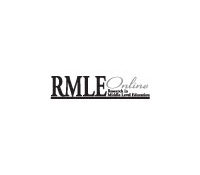
tandfonline.com har udgivet en rapport under søgningen “Teacher Education Mathematics”: Abstract Abstract This qualitative study examines the perceptions that Latino students have of middle school social studies. Twelve Latino/a middle school students provided written narratives recounting their experiences in social studies and participated in two semi-structured phenomenological interviews. Findings indicate that social studies teachers rely heavily upon “banking” pedagogy and the curriculum lacks cultural diversity. Students also perceived social studies as the ideal subject area in middle school to engage in global learning opportunities as well as discussion about current events. Latino/a students’ experiences and subsequent perceptions of middle school social studies are consistent with theory and research pertaining to adolescent identity, cognitive, and psychosocial development. Findings from this investigation add to the extant canon of literature on students’ perceptions… Continue Reading →
Like this:
Like Loading...
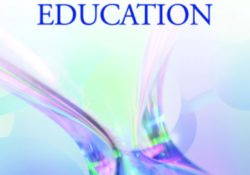
tandfonline.com har udgivet en rapport under søgningen “Teacher Education Mathematics”: Abstract Abstract Grant-funded curriculum development efforts can substantially impact practice and research in science education. Therefore, understanding the sometimes-unintended consequences of changes in grant priorities is crucial. Using the case of two large funding agencies in the United States, the current portfolio review provides insight into these consequences by examining shifts in the characteristics of K-12 science curriculum materials funded during two time periods with differing funding priorities. Findings revealed a move away from comprehensive curricula, increased reliance on technology-based materials, a growing trend towards open access, but also a decrease in teacher supports. While these shifts may enhance teachers’ flexibility to shape curriculum, they also increase the challenge of ensuring curricular coherence. Recommendations are outlined for policymakers, science education… Continue Reading →
Like this:
Like Loading...
